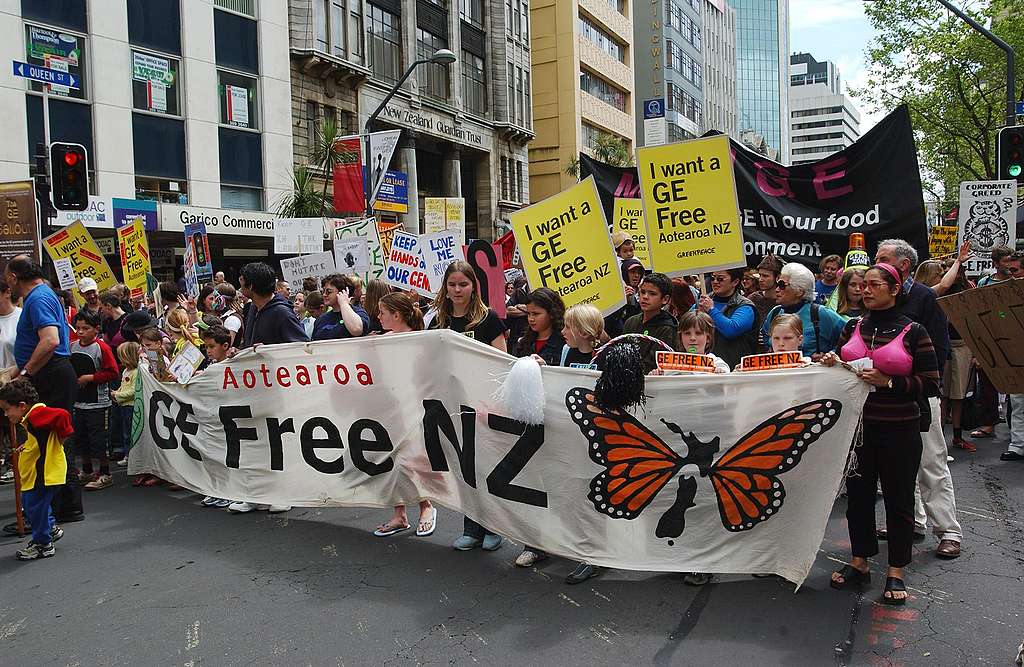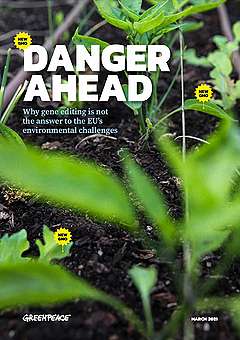Why GE gene editing is not the answer to modern environmental challenges

In this genetic engineering cripsa gene editing briefing, Greenpeace warns that the use of so-called gene (or genome) editing techniques like CRISPR-Cas could not only exacerbate the negative effects of industrial farming on nature, animals and people, but it could effectively turn both nature and ourselves (through the food we eat) into a gigantic genetic engineering experiment with unknown, potentially irrevocable outcomes.

Gene editing is a set of new genetic engineering techniques that is both powerful and easy to use. It can be applied in medicine and in various industries, including agriculture, as much as by hobby scientists (biohackers) and the military.
This paper focuses on the environmental release of gene-edited organisms for agricultural purposes. In farming, the use of gene editing could extend far beyond the scope of old-style genetic modification (GM) technology. Potential applications are not limited to agricultural crops and farm animals, but extend to a wide range of wild species. Gene editing also makes it possible to transfer the genetic engineering process from controlled laboratory conditions to open fields and nonagricultural landscapes, essentially converting the environment into the laboratory.
Proponents of GM technology want governments to give a pass to most gene-edited organisms by excluding them from regulations governing genetically modified organisms (GMOs). This would mean that farmers, retailers and consumers would no longer be able to reject GM products and opt for GM-free choices. It would leave the fate of our food and nature in the hands of a few corporations that have shown to have little regard for peopleʼs health and the environment.
However, in the European context, one of New Zealand’s significant markets, new GMOs are indeed subject to existing EU GMO law pursuant to a July 2018 ruling by the European Court of Justice (ECJ). The EU Commission and Member States have a duty to fully apply and enforce EU GMO law, while fixing weaknesses in the areas of risk assessment, labeling and democratic oversight. Greenpeace called on the EU to make it a priority to adopt and implement policies that change the predominant chemical-based farming system towards ecological agriculture that works with, not against, nature.
